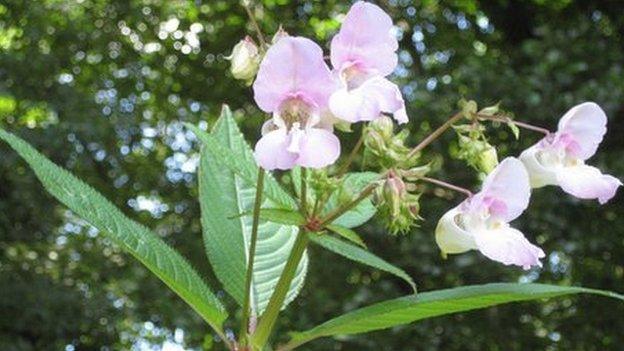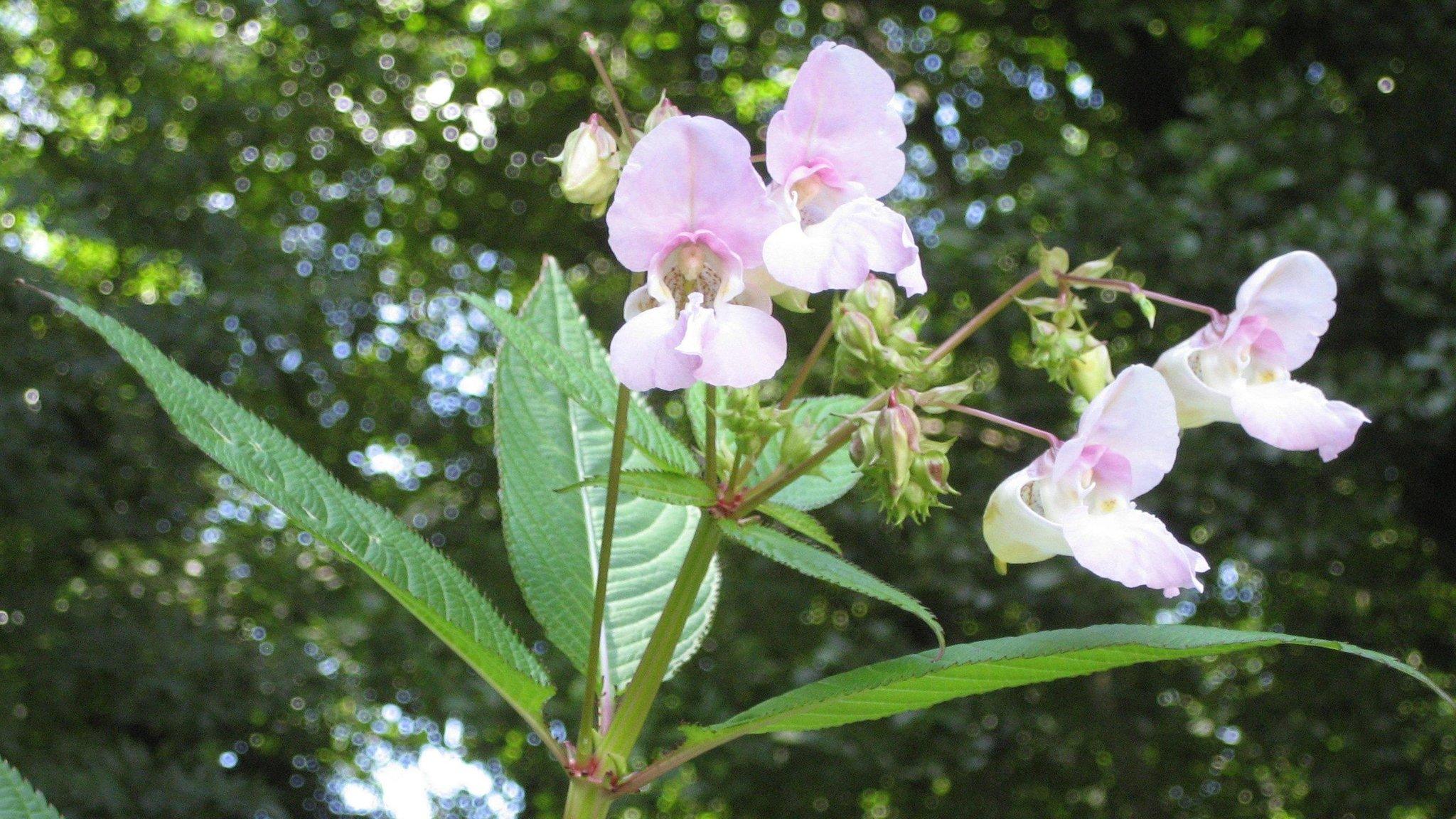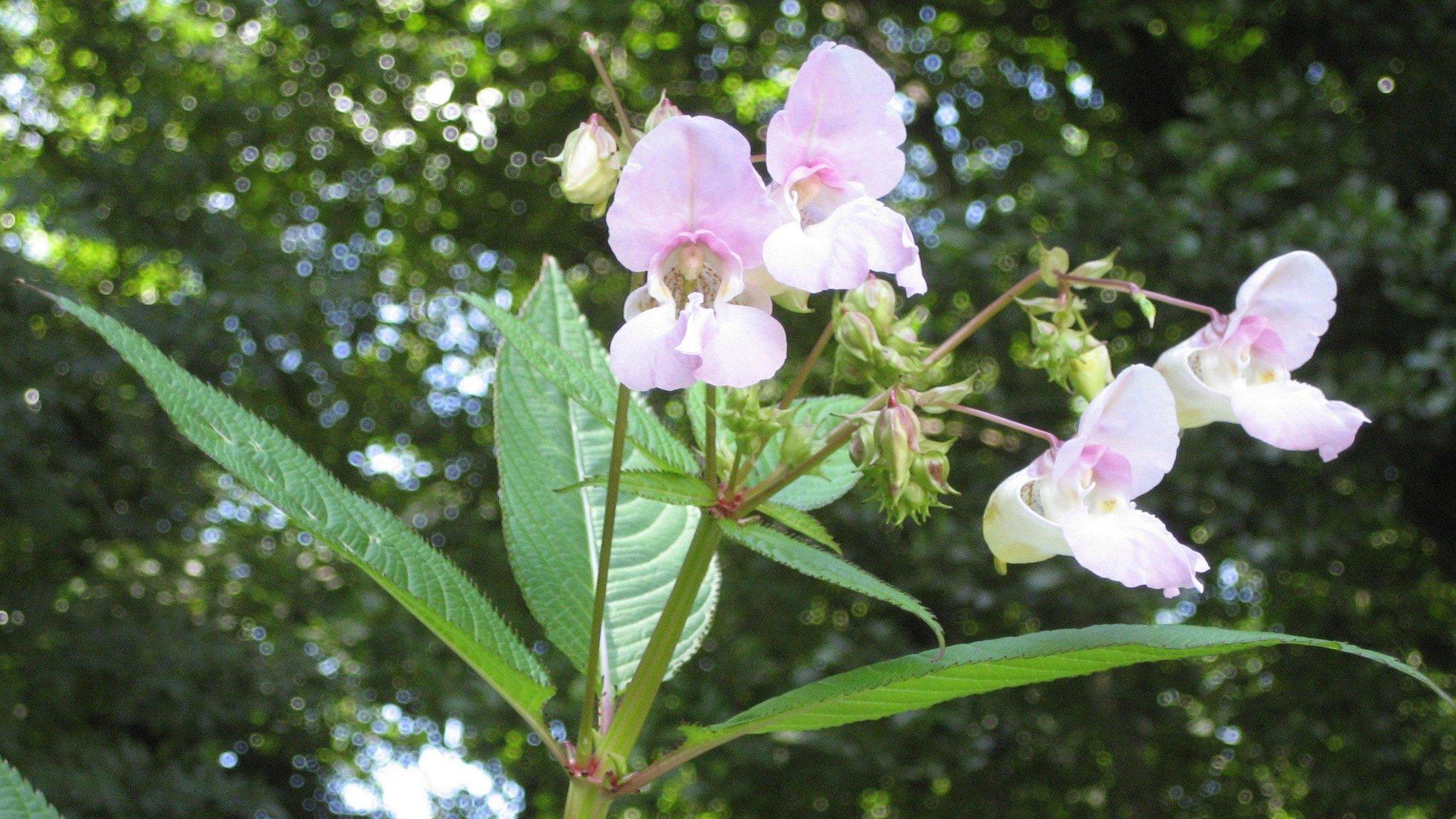Himalayan balsam weed growth slowed in Dorset
- Published

The plant is "destructive if left to bloom", Dorset Wildlife Trust said
"Plant pulling" by a team of volunteers is helping to slow the spread of a destructive species in Dorset, a charity has said.
Last year the county's wildlife trust appealed for help to stop the spread of the Himalayan balsam which was said to be "causing havoc" on riverbanks.
Results suggest there has been less re-growth of the plant in areas targeted by the trust.
Ecology students have helped the public in identifying and removing plants.
The plant is "destructive if left to bloom" as it "elbows out" native wildflowers, the charity said.
The Royal Horticultural Society said the Himalayan balsam was introduced to the UK in 1839, is found on riverbanks and wasteland and is a "major weed problem".
Each plant can produce up to 800 seeds which "explode" and travel up to 22ft (7m) away.
- Published14 July 2014

- Published27 June 2014

- Published1 April 2013
